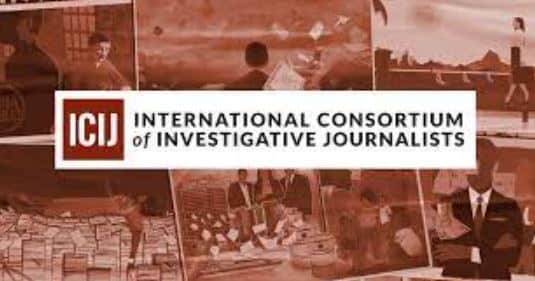The Pandora Papers leak is the biggest ever. Bigger than the 2017 Paradise Papers, the biggest leak in history at that time.
It’s 2.7TB in total (or 2,700GB), and all images and documents. As we know from attempts to visually represent the scale of Jeff Bezos’s wealth, such large numbers are near impossible to fathom.
So how in hell does this much stuff get turned into 500-word news stories? What gets filtered in, and what gets filtered out?
The Pandora Papers leak was executed by the International Consortium of Investigative Journalists (ICIJ). ICIJ literally developed its own software to be able to make sense of the data.
One program, Extract, shares text searching across multiple computers, because the data is too much for a single processor to manage. Searching the Pandora Papers requires access to the ICIJ’s Datashare platform.

“Everyone has to use Datashare to explore the documents,” says Delphine Reuter of ICIJ. “They can download documents to their own machine, but they have to use Datashare to search the documents because it’s not doable to go through 11.9 million documents without the system.”
Yet to make the initial story “break” in the big way that it did, the ICIJ also contacted “partner journalists” in different countries. This was done by compiling “country lists” and “people of interest lists” and drawing journalists’ attention to these names.
This is why the story so far has focused substantially on politicians and other public figures like celebrities. And it is a huge story.
The leak outed the current heads of state of Chile, Ecuador, Ukraine, Czech Republic, Lebanon, Qatar, Dubai, Jordan, Kenya, Gabon, Ivory Coast, Azerbaijan, Montenegro, Cyprus, Dominican Republic and the Congo. Former heads of state mentioned are from the UK, Italy, Colombia, Hong Kong, Bahrain, Georgia, Mongolia, Paraguay, El Salvador, Honduras, Peru, Haiti, Mozambique, as well as of course Panama itself.
Thus, the Pandora Papers has become a story about massive public rorting by politicians, most of whom represent countries that can least afford it.
So what about countries where it’s not that state but the private sector that is the main economic player?
The Pandora Papers reveal the real owners of 29,000 off-shore companies, who reside in 200 different countries and territories. Nine Newspapers claimed “around 400” Australians are named in the Pandora Papers.
So who are they? How much are they keeping in tax havens, and why? What social contract do they or should they have with the Australian public? What should the consequences be?
These questions are not yet being asked by a media that appears swamped by the scale of the problem.
Follow Christian on Twitter for more news updates.